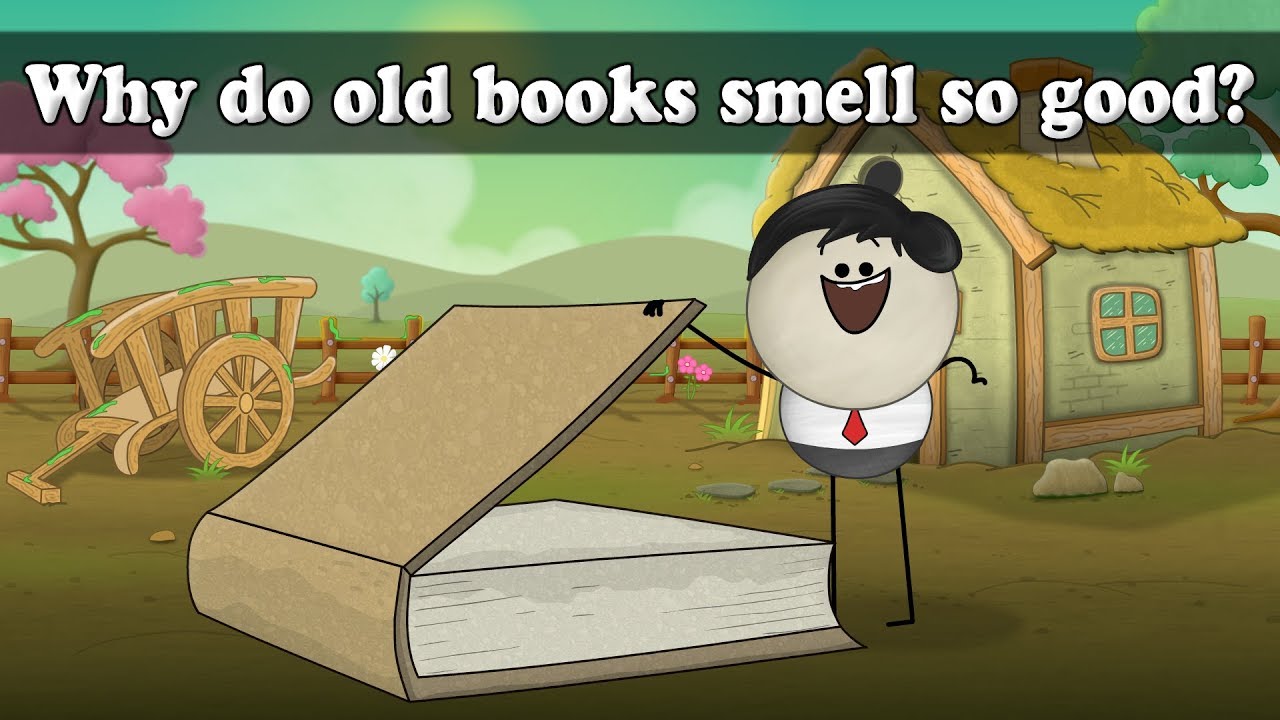Why Do Old Books Smell So Good?
Ah, the delightful aroma of old books! Have you ever wondered why they smell so good? It’s a mystery that has intrigued book lovers for generations. Whether you’re a bookworm or just someone who appreciates the scent of nostalgia, the allure of that musty fragrance is undeniable. So, why exactly do old books smell so good? Let’s dive into the captivating world of book odors and uncover the secrets behind their intoxicating scent.
When you crack open the weathered pages of a vintage novel, there’s a distinct fragrance that wafts through the air. It’s a combination of various elements that have come together over time. Firstly, the paper itself plays a significant role. Old books were often made from high-quality paper, crafted from natural materials like cotton or linen. As these fibers break down over the years, they release organic compounds known as lignin. Lignin is responsible for that sweet, vanilla-like scent that lingers in the air as you flip through the pages.
Additionally, the aging process of books creates a chemical reaction that adds to their unique aroma. Over time, the ink, adhesives, and other materials used in book production undergo subtle changes. These alterations result in the release of volatile organic compounds (VOCs) that contribute to the overall scent of old books. The combination of these VOCs, along with the scent of aged paper, creates a sensory experience that transports us to different eras and evokes a sense of nostalgia. So, the next time you bury your nose in the pages of an ancient tome, take a moment to appreciate the fascinating chemistry behind that intoxicating old book smell.

Why Do Old Books Smell So Good?
The Science Behind the Aromatic Charm
Old books have a distinct smell that evokes nostalgia and delight for book lovers. Have you ever wondered why that is? The captivating scent can be attributed to a combination of factors, including the materials used in book production and the chemical reactions that occur over time.
One of the main contributors to the delightful smell is the paper itself. In the past, books were often made from high-quality paper that contained lignin, a complex organic polymer. As the lignin breaks down, it releases volatile organic compounds (VOCs) that produce a unique aroma. These VOCs include vanillin, which is responsible for the sweet, vanilla-like scent often associated with old books.
The Role of Microbes
Microbes also play a significant role in the scent of old books. As books age, microorganisms such as bacteria and fungi colonize the pages. These microorganisms produce metabolic byproducts that contribute to the overall aroma. The combination of VOCs from the breakdown of lignin and the byproducts of microbial activity creates the distinct smell that book lovers find so appealing.
Interestingly, the smell of old books can vary depending on factors such as the type of paper, ink, and binding materials used. Each book has its own unique scent, adding to the allure of exploring old libraries and second-hand bookstores.
The Impact of Environmental Factors
Environmental conditions also influence the development of the characteristic smell of old books. Factors such as temperature, humidity, and exposure to light can accelerate or slow down the chemical reactions responsible for the aroma. For example, books stored in damp environments may develop a musty odor due to mold growth, while prolonged exposure to sunlight can cause the paper to yellow and result in a different scent.
The smell of old books is not only a pleasing sensory experience but also a testament to the history and craftsmanship behind these literary treasures. Understanding the science and factors that contribute to the aroma allows us to appreciate them even more.
Preserving the Fragrance
While the smell of old books may be cherished, it is essential to take steps to preserve their condition. Here are some tips to help maintain the aromatic charm:
1. Store books in a controlled environment:
Keep books in an environment with stable temperature and humidity levels to prevent mold growth and deterioration.
2. Avoid direct sunlight:
Expose books to minimal sunlight to prevent fading and discoloration of the pages.
3. Handle with care:
When reading or handling old books, ensure that your hands are clean and dry to prevent oil and moisture transfer, which can damage the pages.
4. Use archival materials:
If necessary, use acid-free archival materials for book repairs or storage to prevent further degradation.
5. Keep books upright:
Store books vertically on sturdy bookshelves to prevent warping or damage to the spine.
By following these preservation techniques, you can continue to enjoy the delightful scent of old books while ensuring their longevity for future generations to appreciate.
Key Takeaways: Why do old books smell so good?
- Old books have a unique smell due to the breakdown of chemicals in the paper and ink over time.
- The scent is created by volatile organic compounds (VOCs) released from the materials.
- Lignin, a compound found in wood, is one of the main contributors to the pleasant aroma.
- Mold and mildew can also add to the scent of old books, but it’s important to prevent their growth.
- The nostalgic smell of old books can evoke memories and create a sense of comfort and familiarity.
Frequently Asked Questions:
Question 1: What causes the distinct smell of old books?
Old books have a unique aroma that can transport us back in time and evoke a sense of nostalgia. The smell is caused by a combination of factors, including the materials used in the bookbinding process and the natural deterioration of the paper over time.
One of the primary contributors to the smell is lignin, a substance found in the cell walls of plants. Lignin is present in high quantities in the paper used in older books, especially those published before the mid-20th century. As lignin breaks down, it releases volatile organic compounds (VOCs), which are responsible for the characteristic scent.
Question 2: Are there different types of smells associated with old books?
Yes, there can be variations in the smell of old books depending on various factors such as the type of paper, ink, and binding materials used. For example, books printed on different types of paper, such as parchment or rag paper, may have distinct smells.
Additionally, the presence of mold or mildew due to improper storage conditions can also contribute to a musty or damp odor. It’s important to note that while some book smells can be pleasant and nostalgic, others may indicate damage or deterioration, requiring proper attention and preservation.
Question 3: Is the smell of old books harmful?
The smell of old books is generally not harmful, although prolonged exposure to mold or mildew can have negative health effects. If you come across a book with a strong musty odor, it’s advisable to handle it with care and consider proper ventilation. In cases where books show signs of mold or mildew, it’s recommended to consult a professional for safe cleaning and restoration.
It’s worth mentioning that some individuals may have sensitivities or allergies to certain compounds present in old books, such as VOCs released by deteriorating paper. If you experience any discomfort or respiratory issues when exposed to the smell, it’s best to limit your exposure or consult a healthcare professional.
Question 4: Can the smell of old books be preserved?
Preserving the smell of old books can be a challenging task, as it is a natural result of the aging process. However, there are steps you can take to slow down the deterioration and maintain the unique aroma. Storing books in a cool, dry environment with proper air circulation can help prevent mold growth and minimize the breakdown of paper and binding materials.
It’s also important to handle books with clean hands to avoid transferring oils and dirt onto the pages. If you wish to enhance the scent of old books, some experts suggest placing them alongside fragrant substances like dried lavender or cedar chips, but caution should be exercised to ensure these substances do not cause any damage to the books.
Question 5: Can the smell of old books be replicated?
While attempts have been made to replicate the smell of old books, it is a complex and elusive scent that is difficult to recreate artificially. The distinct odor is a result of various chemical reactions and the unique combination of materials used in the bookmaking process.
However, there are products available in the market that aim to evoke the smell of old books, such as scented candles or sprays. These products may not capture the exact scent, but they can provide a reminiscent experience for book lovers who appreciate the aroma of old books.
Why Do Old Books Smell So Good?
Final Thought: The Irresistible Allure of Old Book Smell
Ah, the sweet aroma of old books. It’s like a time machine that transports us to another era, captivating our senses and igniting our imagination. But why do old books smell so good? Well, it turns out that there’s a scientific explanation behind this nostalgic fragrance.
The delightful scent of old books comes from a combination of factors. First, the paper itself plays a role. As books age, the chemicals in the paper break down, releasing organic compounds known as volatile organic compounds (VOCs). These VOCs, such as vanillin and lignin, give off a pleasant, musty smell that we associate with vintage books.
Additionally, the environment in which the books are stored contributes to their distinctive aroma. Factors like humidity and temperature affect the aging process of paper, leading to the development of unique scents. The scent of old books can vary depending on whether they were stored in a dry attic or a damp basement, adding to the allure of each individual tome.
Beyond the scientific explanation, the scent of old books holds a deeper meaning for book lovers. It evokes a sense of nostalgia, reminding us of cherished moments spent immersed in the pages of a well-loved novel. It symbolizes the passage of time and the enduring wisdom contained within those pages. The smell of old books is not just a fragrance, but a portal to the past, connecting us to the countless stories and knowledge that have been passed down through generations.
So, the next time you bury your nose in the pages of an old book, take a moment to appreciate the unique scent that fills the air. It’s a testament to the power of literature and the timeless magic that can be found within the pages of a well-worn volume. Let the aroma whisk you away on a journey through time, where stories come alive and imagination knows no bounds. Embrace the allure of old book smell, for it is a treasure that words alone cannot convey.






